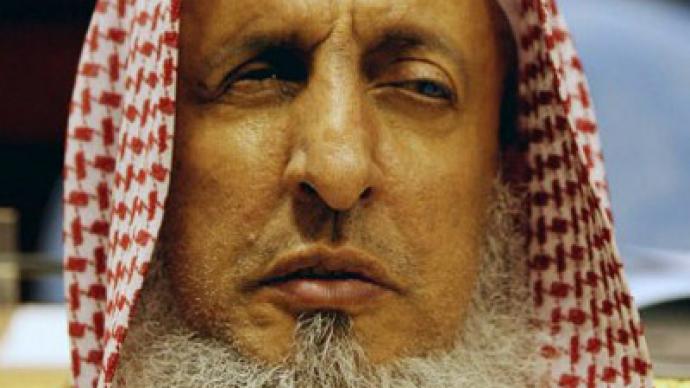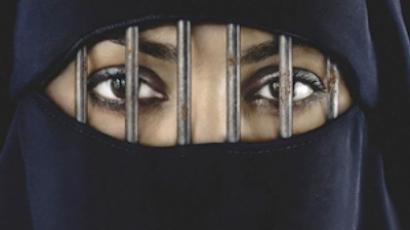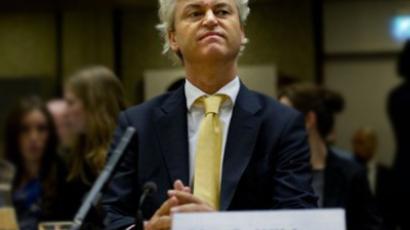Destroy all churches in the Arabian Peninsula – Saudi Grand Mufti

The Grand Mufti of Saudi Arabia has said that all churches in the Arabian Peninsula must be destroyed. The statement prompted anger and dismay from Christians throughout the Middle East.
Grand Mufti Sheikh Abdul Aziz bin Abdullah made the controversial statement in a response to a question from a Kuwaiti NGO delegation. A Kuwaiti parliamentarian had called for a ban on the construction of new churches in February, but so far the initiative has not been passed into law. The NGO, called the Society of the Revival of Islamic Heritage, asked the Sheikh to clarify what Islamic law says on the matter. The Grand Mufti, who is the highest official of religious law in Saudi Arabia, as well as the head of the Supreme Council of Islamic Scholars, cited the Prophet Mohammed, who said the Arabian Peninsula is to exist under only one religion. The Sheikh went on to conclude that it was therefore necessary for Kuwait, being a part of the Arabian Peninsula, to destroy all churches on its territory. In February, Kuwaiti MP Osama al-Munawar announced on Twitter that he was planning to submit legislation that would remove all churches in the country. However, he later clarified that existing churches should remain, while the construction of new non-Islamic places of worship would be banned. Another MP, Mohamemd Hayef, backed al-Munawar, saying the number of churches in the country was already disproportionate to the number of Christians. As for Saudi Arabia, all religions other than Islam are banned and there are no churches, although a small minority of Christians is theoretically allowed to practice their religion in the privacy of their own home. The Grand Mufti’s words have caused a heated response from Christians living in Egypt, Lebanon, Jordan and other countries throughout the Middle East. A number of bloggers also wrote on the issue. “Considering the hysteria that besets the West whenever non-authoritative individuals offend Islam – for instance, a fringe, unknown pastor – imagine what would happen if a Christian counterpart to the Grand Mufti, say the Pope, were to declare that all mosques in Italy must be destroyed; imagine the nonstop Western media frenzy that would erupt, all the shrill screams of 'intolerance' and 'bigot,' demands for apologies if not resignation, nonstop handwringing by sensitive politicians, and worse,” Raymond Ibrahim of Jihad Watch, a blog critical of extremist Islamic laws, wrote.
Despite the sensational news value of the story, the Western media has been remarkably silent. No major news services have covered the story yet. Ibrahim argues that the Grand Mufti gets a free pass even when he incites Muslims to destroy churches because Saudi Arabia is an ally of the United States.
Restrictions on Islam in the West
The Grand Mufti’s words seem to mirror what a number of US politicians have been calling for – only their words were aimed at mosques and Muslims. In January, Republican Presidential candidate Herman Cain said Americans have a constitutional right to ban mosques, arguing that Islam combines church and state, which contradicts the US Constitution. "They're using the church part of our First Amendment to infuse their morals in that community, and the people of that community do not like it,” Cain said on Fox News Sunday.In November, Pat Buchanan, who vied for the Republican presidential nomination on a number of occasions, agreed with radio host Bryan Fischer in promoting limits to immigration from Islamic countries and the construction of new mosques. In 2009 a constitutional amendment banning the construction of minarets was adopted in Switzerland following a referendum on the subject. Almost 58 per cent of the population said yes to the initiative, although the traditionally leftist French-speaking part of the country rejected it. The construction of new minarets is now banned throughout Switzerland, though the four existing minarets in Zurich, Geneva, Winterthur and Wangei bei Olten are to remain. In 2010, French legislators banned face-covering headgear in public. The ban meant that women caught wearing the burqa in public could be fined up to 150 euros and/or be forced to participate in citizenship education. Proponents of the legislation argued that face covering was both an issue of security and social integrity, as facial recognition is important for communication. Opponents said the law encroached on personal freedoms.













